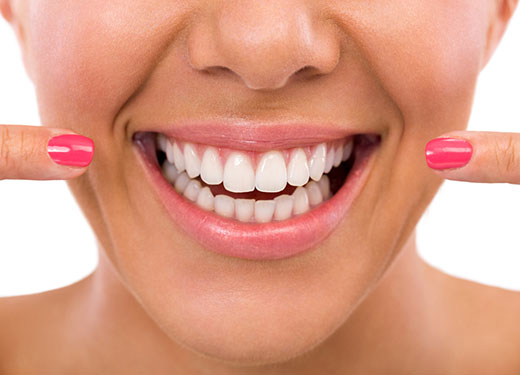We’ve all been there. Your family goes in for a round of dental checkups, only to find out that you are the only one who needs a few fillings, a root canal, and a crown. Do you ever feel like you are more prone to cavities than other people? Although most people chalk up this feeling to paranoia, research has shown that some individuals are truly at a higher risk for developing dental caries. Here are four factors that can contribute to dental decay, and what you can do to fend off problems.

1. Your Daily Sugar Intake
Do you have a sweet tooth? If so, you might be more likely to struggle with cavities. When you eat sugar, residues linger behind in your mouth, feeding the oral bacteria that create dental decay. These bacteria produce acids as they grow and multiply, eroding dental enamel and causing cavities. These acid “attacks” occur for as long as 20 minutes every time you eat sugar, which is why repeated exposure is so damaging to your smile.
If you tend to get a lot of cavities, think carefully about your diet and your daily habits. Do you love sipping on a soda during your work shift? Do you keep a drawer full of candy next to your computer, couch, or bed? If so, you might be subjecting your teeth to acid all throughout the day, contributing to serious dental problems.
To limit your sugar intake, focus on eating whole, satisfying foods so that you aren’t tempted to snack. Avoid keeping “easy access” sugars around, such as wrapped candies, full-sugar sodas, or sugary gum. Instead, opt for their sugar-free counterparts. In addition to saving your teeth, you might also protect your health. Ingesting large amounts of sugar has also been tied to problems like brain fog, insulin resistance, and overeating.
2. Your Ethnicity
It’s an unfair truth, but some people are simply more prone to dental decay because of their DNA. Research studies have shown that some ethnic groups tend to have higher rates of untreated dental decay than others. For example, the study showed that Hispanics had a 36% rate of untreated decay and that African-Americans had a 46% rate of untreated decay—while Asians only had a 17% rate of untreated decay.
Although cultural norms, diet, and certain lifestyle decisions can definitely play into whether or not a group of people is more likely to have cavities, further research showed that biology was to blame. Some African-Americans were found to be missing a salivary protein that protected them against certain oral bacteria, which automatically puts those people at a higher risk for developing cavities.
If your family struggles with dental decay, meet with your dentist to talk about your risk. If you have already had dental decay that has damaged your smile, find a dental practice that focuses on cosmetic dentistry in Boston. In addition to treating your oral decay, they can make your teeth look as good as new.
3. Your Choice of Toothpaste
Fluoride, which is a naturally occurring element commonly found in (and sometimes added to) drinking water, is more important than most people realize. Fluoride helps your teeth to ward off bacteria and heal after acid attacks, so using a fluoride toothpaste is an absolute must. In fact, simply using a toothpaste with fluoride has been shown to reduce your risk for cavities by as much as 24%.
Unfortunately, these days people are all too willing to drop their favorite fluoridated standby in favor of a fun “gourmet” toothpaste. Gourmet toothpastes come in flavors ranging from chocolate to lavender, but the fact of the matter is that many of these toothpastes aren’t approved by the ADA.
If you have chosen one of those gourmet or organic toothpastes, evaluate the label to see whether or not it contains fluoride. If it doesn’t, shop for a version that contains fluoride, and consider saving your gourmet flavor for additional brushing sessions. Otherwise, you might be talking with your dentist about dental implants in Boston in a few years.
4. Your Daily Habits
How do you take care of your teeth on a daily basis? If you have a tendency to forget about brushing and ignore flossing, or if you like to smoke, you are at a higher risk for dental decay.
As you eat and drink, your teeth constantly collect food particles that eventually turn into plaque and tartar. Plaque acts as a microscopic food source for bacteria, allowing those dental villains to damage your teeth as you go about your day. Over time, bacteria can colonize along your gum line, sparking an inflammatory response in your gum tissue and leading to gingivitis and periodontal disease.
Smoking is equally damaging. In addition to bathing your teeth in chemicals and tar residue, the stark temperature changes associated with smoking can impede healing and cause infections.
In order to keep your mouth healthy, clean, and cavity-free, be strict with your daily oral hygiene routine. Brush twice a day and floss daily, and talk with your doctor about how to quit smoking.
If you know that you are at a higher risk for developing cavities, contact your Boston dentist today to schedule an appointment for a checkup. Frequent preventive care can help you to ward off tartar accumulation, gum disease, and cavities, so that you can keep your smile clean and beautiful.
